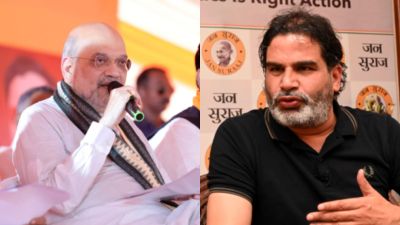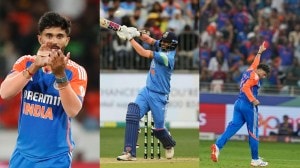Haryana tells docs not to prescribe drugs by brands
The Haryana Health Department has ordered doctors in government hospitals and dispensaries to prescribe only ‘generic medicines’ i...

The Haryana Health Department has ordered doctors in government hospitals and dispensaries to prescribe only ‘generic medicines’ instead of the usual branded drugs.
It has also asked chemists to sell ‘generic medicines’ at ‘recommended sales price’, lower than the the maximum retail price (MRP), a move that is expected to bring down the prices of these drugs by as much as 25 per cent, beginning July 1.
The department has ordered chemists to display a list of over 160 generic medicines along with their reduced prices.
While chemists across the state have agreed in principle to slash the rates of generic drugs following a meeting between representatives of the Haryana Chemist and Druggist Association and the health authorities, there is strong resentment against the move. Chemists claim there is no Act or law which binds them to sell products below the MRP. The move, they say, will hit the sales of branded drugs.
‘‘It will be hard to convince a customer to buy a branded drug sold at 10 per cent over the MRP than a generic one which will now be cheaper,’’ rued B B Singal, president of the Panchkula Chemists’ Association. Sale of generic drugs, he said, contributes only Rs 1,200 crore to the Rs 30,000-crore pharmaceutical industry in the country.
The decision to go in for generic medicines has been greeted with trepidation by the medical community too. A doctor, on condition of anonymity, said it will compromise quality with regard to the ‘bio-availability rate’ (time taken for a medicine to effectively dissolve in the blood plasma and also the quantum being dissolved).
Fast bio-availability rate — this ensures quick reaction of the drug — the USP of the majority of branded drugs, does not hold true of most generic drugs. ‘‘Doctors recommend branded drugs due to their higher dissolution rate. Salt composition gets dissolved in blood plasma,’’ said a doctor at the Sector 6 General Hospital in Panchkula.
However, Haryana’s Deputy Drug Controller S K Dua said generic medicines comply with the norms governing the bio-availability rate. ‘‘It makes no difference if branded drugs have higher rate’’, he said. Panchkula CMO Dr B.S Chaudhary said the decision to prescribe generic drugs was agreed upon to prevent patients from being exploited.
There is another community that will bear the brunt of the decision — medical representatives. The ban on the sale of branded drugs in government hospitals and dispensaries has put at stake nearly 4,000 jobs of medical representatives.
Says Ajay Sharma, general secretary of the Chandigarh Medical Representatives Association: ‘‘Since generic drugs are seldom promoted, companies involved in the production and marketing of branded drugs are now thinking of cutting costs by retrenching MRs’’.





- 01
- 02
- 03
- 04
- 05


























